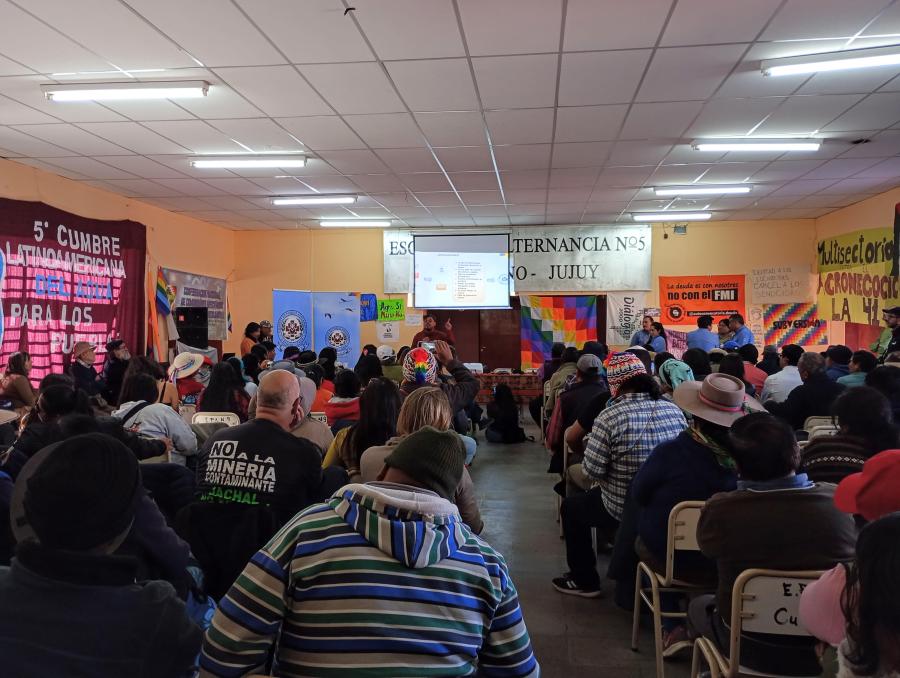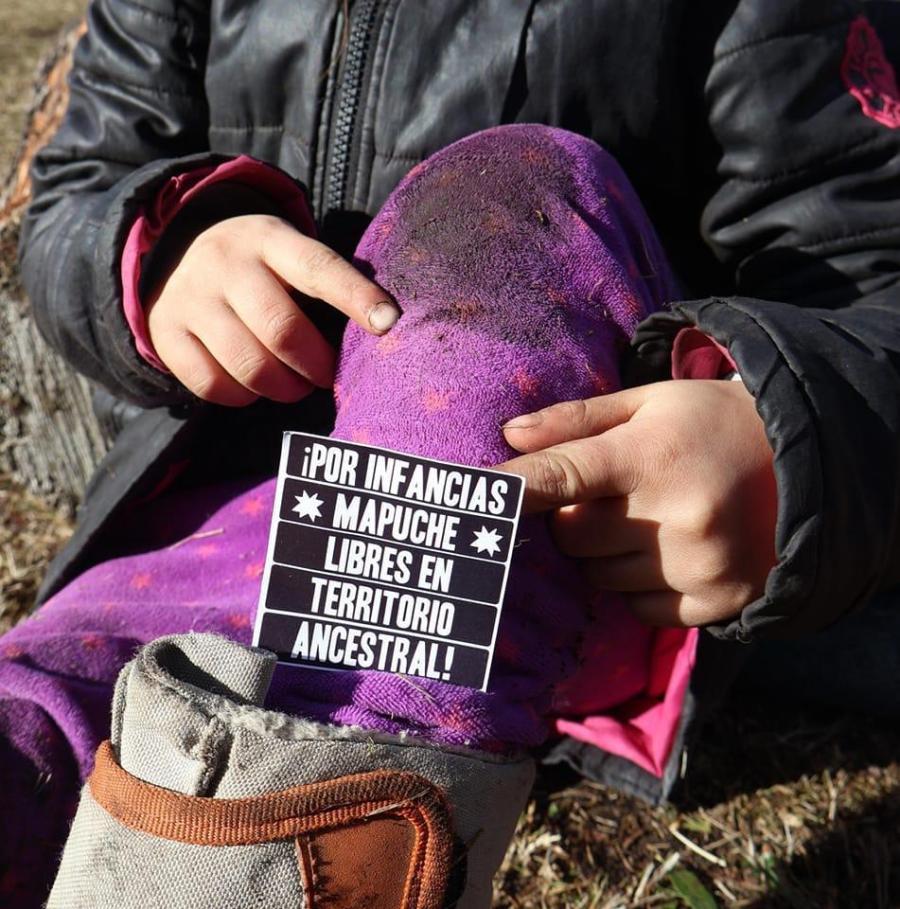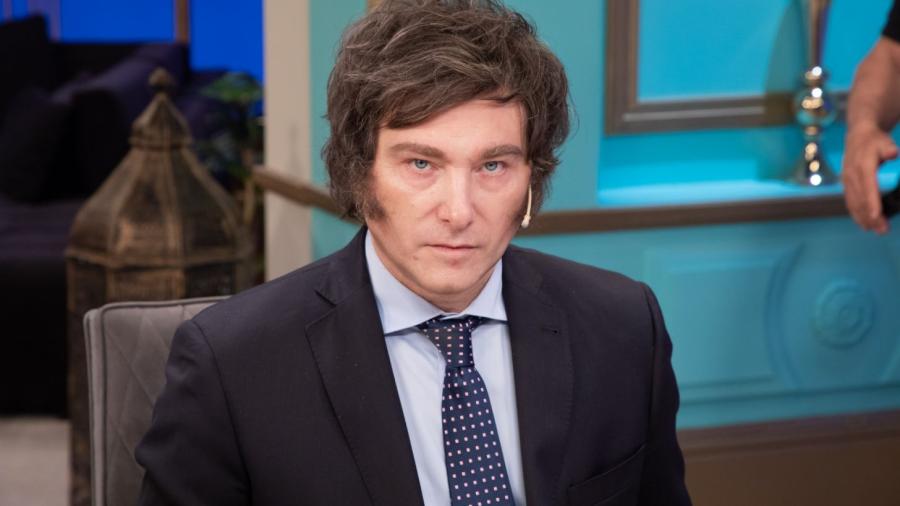Dressed in traditional Incan clothing, a young Peruvian man stands in front of his fellow United Nations delegates and rips an official document into shreds. His fellow delegates applaud while a moderator, sitting at the front of a large auditorium, raises her voice into a tinny microphone to be heard over the clapping. The moderator herself is a Native American from the Yaqui tribe in Mexico. She has been a representative to the United Nations for 25 years and is sympathetic to the frustration of the delegates, but lets them know that this is not the appropriate forum to express these feelings.
The delegates confront this sentiment many times over the two days the conference is held. The event, held in late July, marked the halfway point of the United Nations International Decade of the World's indigenous people. The delegates have come from all over the world, particularly the Americas, to represent their people.
Throughout the conference, the Inca delegate from the Peru delegation has been one of the most outspoken. He is enraged at the members of the panel who seem to be part of the problem, not the solution. He is not alone in his frustration, however, the other Incan delegates are close by. Few seem to be satisfied with what is taking place.
The delegates feel as though they are being silenced, suppressed in the same way that they have been for as long as they can remember. Many representatives testify to this. "I don't understand why we have to prove who we are," said a Wampanoag representative from Massachusetts. "Why do we have to prove to the federal government that we exist? It is obvious that we exist." A representative from the Taino people in Puerto Rico noted the same problem, recalling that the Taino were the first people to encounter Christopher Columbus and his men, and they suffered heavily for it, yet they continued to be unrecognized by the government of Puerto Rico. It was also pointed out that the Taino and the State of Puerto Rico are in similar positions, since the Taino people are oppressed under the government of Puerto Rico, while Puerto Rico exists under a virtual colonial regime of United States with little or no recognition in US government. The pyramid of oppression is multileveled.
Land rights were a central concern at the conference. A central part of defining indigenous people is that their survival is tied to their traditional land. "It is hard to visualize the long-term continued survival of indigenous people without true access to land," stated an International Labor Organization representative. Their religions are land-based and site-specific and their ways of life are connected to the resources that the land provides. "Rights to live on traditional land cannot be separated from freedom of religion" stated a Dineh (Navajo) representative. Her passion stems from the fact that the Dineh are in the process of being forcibly relocated from their traditional homeland at Big Mountain, Arizona by the US government.
Tourism is another issue that plagues indigenous peoples around the globe. "The advertising made us look like zoo animals," a delegate from the Kalash reports to the assembly. The Kalash people live in the northern Himalayas of Pakistan. Heavy snows protect them from the rest of the world for six months of the year. Recently, the government has begun advertising the area where the Kalash live as an exotic place for tourists to visit. The tourist industry, in partnership with the government, has taken over the river, the Kalash's only source of water, in order to build hotels near it. "We only have three tiny valleys," the Kalash delegate pleads to the assembly, "Please do not [let them] take them away from us." Adding to this sentiment, a Caribbean representative from the New Future Foundation of Harlem, New York adds, "Money comes in through the Big Man," referring to the role governments play in tourism.
A delegate from the Argentinean Coya notes that tourists buy trips from agencies that do not realize that indigenous peoples still exist. She gives the example of Macchu Picchu in Peru, which is a sacred site for the Inca. Tourists visiting the site do not stay on the assigned paths and violate the most sacred spaces. They show no respect for the peoples who ancestors lived there not so long ago. Tourists are told that the ancient people who used to live there no longer exist. Few visitors recognize that the inhabitants of the towns they pass through on tour buses are descendants from those same people and that many of them practice the same religious rituals as their antecedents did. The sites are not archaeological relics but active monuments used for ritual by many of the indigenous peoples of the country. When the tourist industry treats the temples as objects to be manipulated for their own use, they disrespect the people who may still consider the sites important to their religion. The indigenous peoples in most parts of the world are forgotten but not gone.
"In most countries, land and the status of indigenous people have a very fragile status," states the International Labor Organization representative. A Lakota man from the Pine Ridge Reservation in South Dakota testifies that the US is practicing ethnic cleansing on the Reservation. Two men were murdered while President Clinton was visiting the Pine Ridge Reservation on his National Poverty Tour (Shannon County where Pine Ridge is located has been the poorest county in the US for over 20 years). In recent years, there have been at least 16 killings in the sacred Black Hills. None of the murders have been resolved, and some claim there has been no investigation. The Lakota consider the unpunished murders a form of ethnic cleansing. During Clinton's speech at Pine Ridge, the Lakota delegate told how he had held up a banner reading "Stop Lakota Ethnic Cleansing." Afterwards, he and his companions were summoned behind the security blockade to speak to the president. Clinton signed his name to the banner. The Lakota consider the signature equivalent to signing a treaty. "The words are there and the president signed it...The message is clear. I interpret this as law," he said. "I need someone to enforce it." Other claims made against the US government by Indigenous representatives include hate crimes, treaty violations, a judicial system that discriminates on the basis of race, and a disproportionate number of non-White Americans on the front lines of the military.
The UN conference concluded with a vote on three points. The first proposal was to adopt a draft of the Declaration of Indigenous Rights with no changes. Second, to extend the time of the Working Group on Indigenous Populations in Geneva from one week to two. Third, to make land a permanent issue for the Working Group since land rights are inherent to Indigenous rights. All three points were acclaimed by voice vote.
Two voices echo from the conference after the speeches are delivered. The first voice is the representatives' cries for help. This voice wants recognition, it wants to be able to take pride it its people and its people's accomplishments. It wants to shake off the tight leash of governmental oppression and have the freedom to live, unopposed, on its traditional land. The second voice speaks to the inner consciousness of indigenous peoples. It comes from the mouth of Tom Sullivan of the Mohawk Bear Clan, saying, "Do not be one of your people's enemies, that is, assimilate to another life." It also comes from the Taino delegate who says, "We cannot think of being acceptable to each other until we are acceptable to ourselves." The Ecuadorian delegate captures the essence of the second voice most poignantly with his declaration, "The fight has to be united...Unite in diversity."
Unity is what the representatives came to the conference to demand. They want equal representation in the UN bodies. They want recognition of their existence from the UN, nongovernmental organizations such as the World Bank, and from each other. As they leave the conference, the representatives may feel frustrated and confused, but they will know that they have represented their nations to the world and that representation is the first step toward change.
Article copyright Cultural Survival, Inc.



